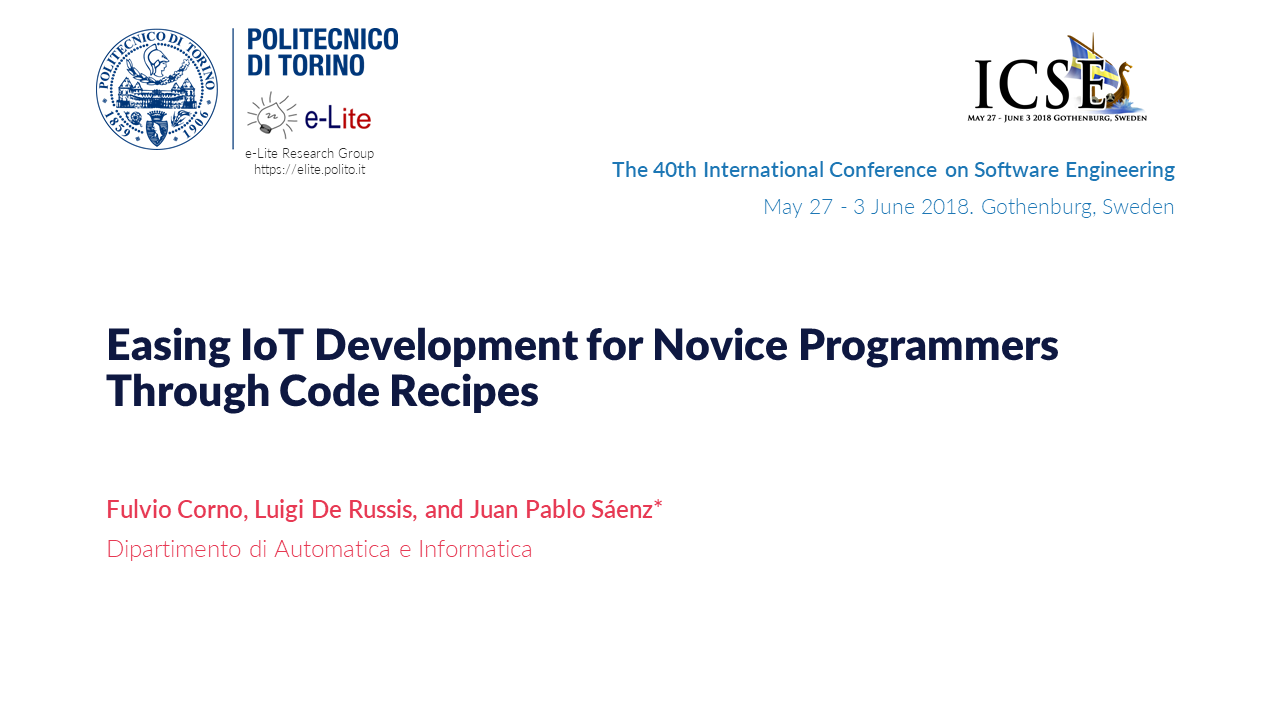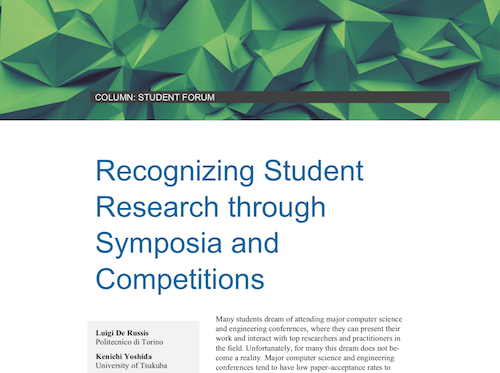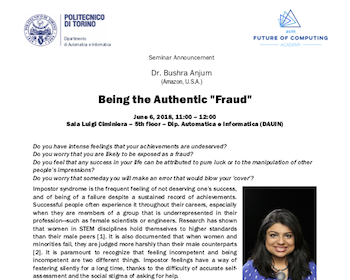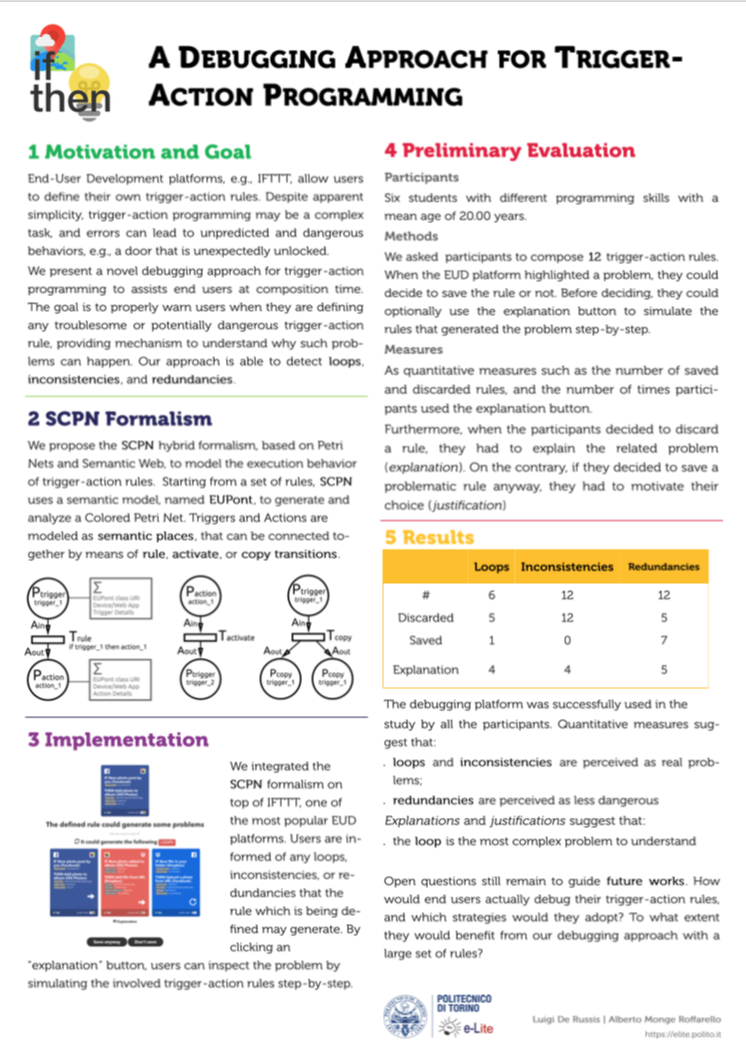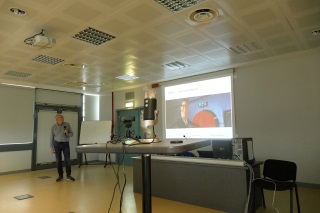- Details
On May 30, 2018, Juan Pablo Sáenz presented the paper Easing IoT Development for Novice Programmers Through Code Recipes at the audience of the 40th International Conference on Software Engineering (ICSE 2018), held in Gothenburg, Sweden.
- Details
The latest number of the IEEE IT Professional magazine (May/June 2018) features an invited paper on "Recognizing Student Research through Symposia and Competitions" for its Student Forum colum. The article proposes a reflection upon the role and attendance of students at scientific conferences, especially in computer science and engineering. In fact, most major computer science and engineering conferences have low paper-acceptance rates also to maintain high-quality presentations and results, and dedicated funds for student attendance are often limited. However, student participation in conferences is important as they are the next generation of researchers. To overcome this issue, more conferences are organizing student-related activities, such as student research symposia and competitions.
- Details
Do you have intense feelings that your achievements are undeserved?
Do you worry that you are likely to be exposed as a fraud?
Do you feel that any success in your life can be attributed to pure luck or to the manipulation of other people's impressions?
Do you worry that someday you will make an error that would blow your 'cover'?
Impostor syndrome is the frequent feeling of not deserving one’s success, and of being of a failure despite a sustained record of achievements. Successful people often experience it throughout their careers, especially when they are members of a group that is underrepresented in their profession - such as female scientists or engineers. Research has shown that women in STEM disciplines hold themselves to higher standards than their male peers. It is also documented that when women and minorities fail, they are judged more harshly than their male counterparts. It is paramount to recognize that feeling incompetent and being incompetent are two different things. Impostor feelings have a way of festering silently for a long time, thanks to the difficulty of accurate self- assessment and the social stigma of asking for help.
- Details
Today, the 31st of May, Luigi De Russis is participating at a satellite event of the International Conference of Advanced Visual Interfaces (AVI): The Future of Computing & Food.
The event was initiated by the Co-Creation Working Group in the ACM Future of Computing Academy (ACM-FCA). This group encourages a co-creation approach to highlight and connect fundamental issues such as food and healthcare with research in computing, to ensure technologies are designed and built to produce a better society. A co-creation approach inspires conjoined creative and critical thinking utilizing various types of expertise in the wider public.
- Details
During the ACM Conference on Human Factors in Computing Systems (CHI), held in Montréal, Canada, from the 21th to the 26th of April, Alberto Monge Roffarello presented his work on end user debugging for the Internet of Things. The presentation took place during two different poster sessions, and saw a discrete partecipation and some interesting discussions, both with people in the industry and in academia.
The paper associated to that presentation is entitled A Debugging Approach for Trigger-Action Programming, authored by Luigi De Russis and Alberto Monge Roffarello. It introduces a novel end users debugging approach for trigger-action rules (i.e., if something happens, then do something else") in the IoT.
- Details
È disponibile il materiale (slide e video) relativo al seminario "Humans vs the Internet of Things" tenutosi il 06/025/2018.


